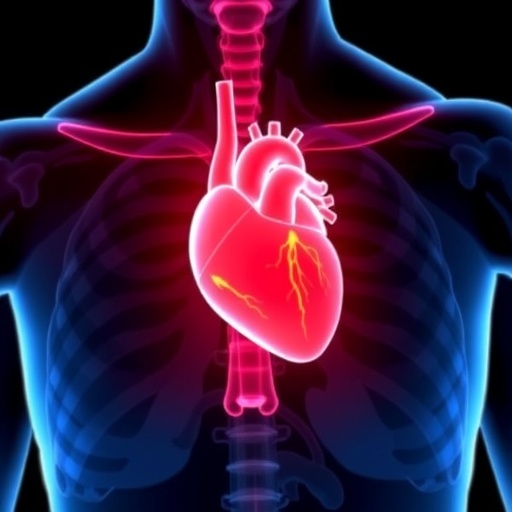A groundbreaking clinical trial from Intermountain Health in Salt Lake City reveals that personalized vitamin D3 supplementation may dramatically reduce the risk of a subsequent heart attack in patients who have already experienced one. This large-scale randomized trial, known as the TARGET-D study, presents compelling evidence that measuring and adjusting vitamin D levels to reach a targeted threshold can halve the likelihood of recurrent myocardial infarction, marking a pivotal advancement in cardiovascular disease management.
While observational studies have long linked low vitamin D levels to adverse cardiovascular outcomes, previous intervention trials using standard dosing strategies failed to demonstrate meaningful reductions in heart attack risk. The Intermountain team hypothesized that the key limitation of earlier studies was the absence of individualized monitoring and dose adjustment aimed at achieving sufficiently high serum vitamin D concentrations. Their approach involved systematic blood level assessments and precision dosing of vitamin D3 to maintain optimal serum concentrations above 40 nanograms per milliliter.
The study enrolled 630 individuals who had suffered a heart attack within the month preceding trial initiation, following them from April 2017 through March 2025. Participants were randomly assigned to either a standard care group, which did not receive vitamin D level monitoring or targeted supplementation, or to an intervention group where clinicians titrated vitamin D3 doses based on regular serum measurements. Strikingly, 85% of these heart attack survivors initially presented with vitamin D insufficiency, indicating a widespread deficiency that could potentially contribute to their cardiovascular risk profile.
Patients within the tailored treatment arm often required substantially higher doses than the conventional recommendations; over half started with 5,000 international units daily, far exceeding the common 600 to 800 IU guideline. This aggressive dosing strategy, guided by serial blood tests performed at quarterly and then annual intervals, enabled clinicians to precisely calibrate supplementation to elevate serum vitamin D levels sustainably above the therapeutic target of 40 ng/mL.
The primary endpoint encompassing major adverse cardiac events (MACE)—including heart attack recurrence, heart failure hospitalizations, stroke, and mortality—showed no statistically significant differences between the groups. However, a remarkable finding emerged when examining recurrent heart attacks singularly: patients receiving targeted vitamin D3 therapy experienced a 50% reduction in the risk of a second myocardial infarction compared to controls. This distinction emphasizes the nuanced cardiovascular benefits of vitamin D optimization beyond generalized event risk reduction.
Dr. Heidi May, principal investigator and cardiovascular epidemiologist at Intermountain Health, underscored the novelty and clinical implications of the findings. “Our data demonstrate not only the safety of administering higher doses of vitamin D3 but also its powerful effect in halving recurrent heart attack risk when individualized therapy is applied. These findings compel us to rethink current supplementation paradigms which often overlook precise serum level management,” she remarked.
Biologically, vitamin D exerts multifaceted effects on cardiovascular health, including modulation of inflammatory pathways, regulation of calcium metabolism in myocardial and vascular tissues, and influence on endothelial function. Deficiency in this key nutrient is associated with increased atherogenesis, plaque instability, and impaired myocardial repair mechanisms. Thus, achieving adequate vitamin D status post-infarction may enhance cardiac recovery and resilience against future ischemic insults.
This study’s significant methodological strength lies in its longitudinal design with extensive follow-up and frequent biochemical monitoring, allowing dynamic adjustment of dosing rather than a static supplementation regimen. Such an approach addresses the heterogeneous vitamin D metabolism among individuals influenced by factors such as baseline deficiency severity, body mass index, genetic polymorphisms affecting receptor sensitivity, and lifestyle variables limiting sun exposure—historically the main source of endogenous vitamin D synthesis.
The TARGET-D trial’s promising outcomes invite further large-scale investigations to validate these preliminary but impactful results. Researchers are particularly interested in evaluating whether targeted vitamin D repletion could confer broader cardiovascular protection, including reductions in heart failure progression, stroke incidence, and overall mortality, beyond the observed effect on myocardial infarction recurrence.
The global prevalence of vitamin D insufficiency, estimated at up to two-thirds of the population, accentuates the public health relevance of these findings. Modern lifestyle shifts such as indoor living, sunscreen usage to mitigate skin cancer risk, and geographic variations in sunlight exposure have collectively diminished endogenous vitamin D synthesis, necessitating reliable supplementation strategies. Personalized vitamin D management protocols could therefore represent a paradigm shift in preventive cardiology.
In conclusion, the Intermountain Health study provides compelling evidence that a tailored, monitored vitamin D3 supplementation approach after a heart attack can substantially reduce the risk of a secondary myocardial infarction. This trial illuminates the critical importance of individualized dosing to achieve optimal serum vitamin D levels, challenging prior assumptions about the efficacy of uniform supplementation doses. As cardiovascular disease remains a leading cause of mortality worldwide, integrating vitamin D level targeting into post-infarction care could substantially enhance patient outcomes.
Future research efforts must focus on expanding these findings in diverse populations and assessing long-term clinical effects. Should subsequent trials corroborate the benefits observed, vitamin D3 serum level management could become an essential component of comprehensive secondary prevention strategies for heart disease, ushering in a new era of precision cardiovascular medicine.
Subject of Research: People
Article Title: Personalized Vitamin D3 Supplementation Halves Risk of Recurrent Heart Attack, Landmark Intermountain Health Trial Reveals
News Publication Date: November 9, 2025
Web References:
https://mediasvc.eurekalert.org/Api/v1/Multimedia/b1791453-1696-4a12-ae0d-60744b5e7bc1/Rendition/low-res/Content/Public
Image Credits: Intermountain Health
Keywords: Acute myocardial infarction, Vitamins, Cardiovascular disorders, Randomized controlled trial, Vitamin D3 supplementation




